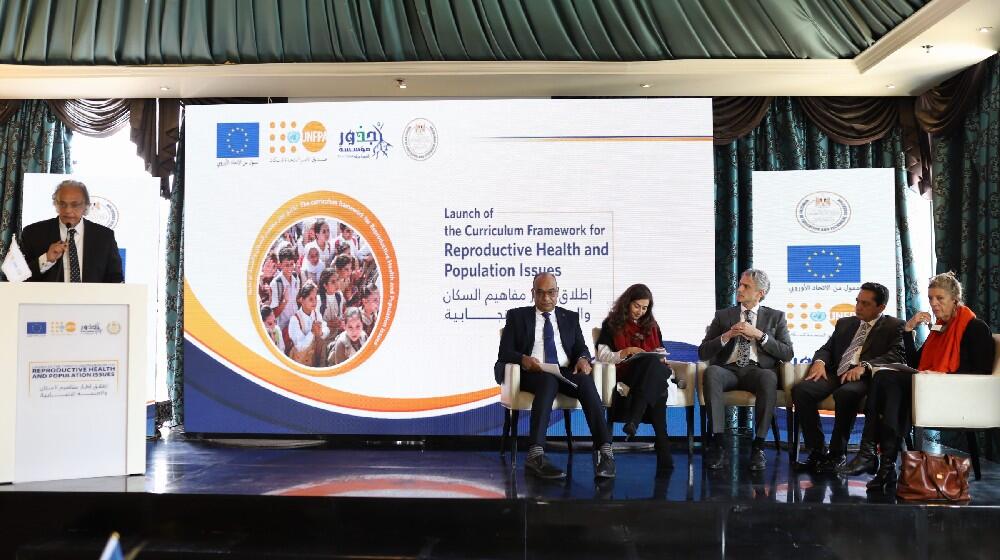The Ministry of Education and Technical Education and the United Nations Population Fund (UNFPA), launched the Curriculum Framework for Reproductive Health and Population Issues, with the support of the European Union (EU) and in partnership with Gozour Foundation, in an event held on December 1, 2022.
The framework comes under the Partnership Strategic Interventions (PSI) that UNFPA signed with the Ministry of Education and Technical Education in 2021, within the context of the EU Support to Egypt’s National Population Strategy project.
The partnership aims to integrate comprehensive population education into the educational system that includes providing technical support for the development of comprehensive framework for integrating reproductive health and population issues into educational system for the preparatory and secondary schools.
The framework is part of the EU project’s efforts to educate youth in reproductive age on family planning through different means including integrating comprehensive reproductive health and population education in school curricula.
Dr. Reda Hegazy, Minister of Education and Technical Education, affirmed the ministry's interest in including the concepts of population and health, as they are among the important issues that affect the society as a whole, indicating that the ministry is working to address issues with a new sustainable thought, which materialized in the integration of social issues into curricula. The Ministry of Education, he said, addresses a wide segment of society that reaches 25%, and the children of today are the pillar of tomorrow’s society, and therefore preserving their health is one of the most important starting points necessary for the future of our country.
“Today we celebrate another milestone in our partnership with the Ministry of Education,” Frederika Meijer, UNFPA Representative in Egypt, said, “having population and reproductive health issues in curricula is bound to contribute to an empowered generation who can make informed decisions about their health, their lives and their future.”
“Education is crucial for human development,” said Tobias Krause, EU Deputy Head of Delegation. “Youth deserves particular attention. To make the right decisions in family planning, young adults need information. Therefore, this programme aims to make reproductive health and population growth part of school curricula”.
The framework was developed in cooperation with the Central Department for Curriculum Development. It is the product of a consultation workshop held in May 2022, bringing together experts from different fields of the Central Department for Curriculum Development, who reached a consensus on key domains, formulated standards for the development of the curriculum, and developed indicators to monitor and evaluate the curriculum.
The workshop confirmed the commitment to sustainable development as a core component of reproductive health and population education.
The final framework was presented to relevant stakeholders by the Ministry of Education over a two-day workshop for their inputs and feedback. The stakeholders included representative of the government, academic entities, national and international agencies working on reproductive health and education, in addition to the Parliamentary Education Committee.
The framework will serve as a reference guide for curriculum development by the experts at the Central Department for Curriculum Development.



